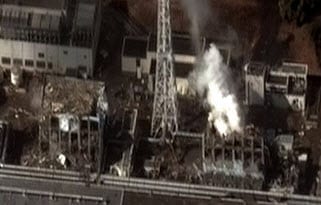 After last year’s Fukushima Daiichi nuclear crisis in Japan, residents of the U.S. began to grow concerned of similar nuclear problems at home. In Japan, the disaster has been linked to some health problems for those in the northern region of the country. While these cases are few and far between, they ignite concerns regarding the overall safety of nuclear power. To help calm the nerves of U.S. citizens, the U.S. Nuclear Regulatory Commission conducted a study to examine the dangers that the energy may pose.
After last year’s Fukushima Daiichi nuclear crisis in Japan, residents of the U.S. began to grow concerned of similar nuclear problems at home. In Japan, the disaster has been linked to some health problems for those in the northern region of the country. While these cases are few and far between, they ignite concerns regarding the overall safety of nuclear power. To help calm the nerves of U.S. citizens, the U.S. Nuclear Regulatory Commission conducted a study to examine the dangers that the energy may pose.
According to the agency’s study, the health risks from a severe nuclear power plant incident are very small. This small risk is because most of the power plants in the country are equipped with mitigation mechanics that can delay or severely reduce the impact of a meltdown or other such disaster. Regulators say that a major nuclear event would have some impact, of course, but the extent of the damage would be marginal, especially in regards to health and safety.
The study was released this week so there is no telling whether it will accomplish its goal of easing the minds of U.S. residents. Regulators claim that all of the nuclear facilities in the country are well protected from any natural disaster that could potentially cause problems. Opponents of nuclear energy, however, say that even a small risk to people’s safety is too much to ignore, especially when there are other forms of energy that do not pose such risks to the general public.
